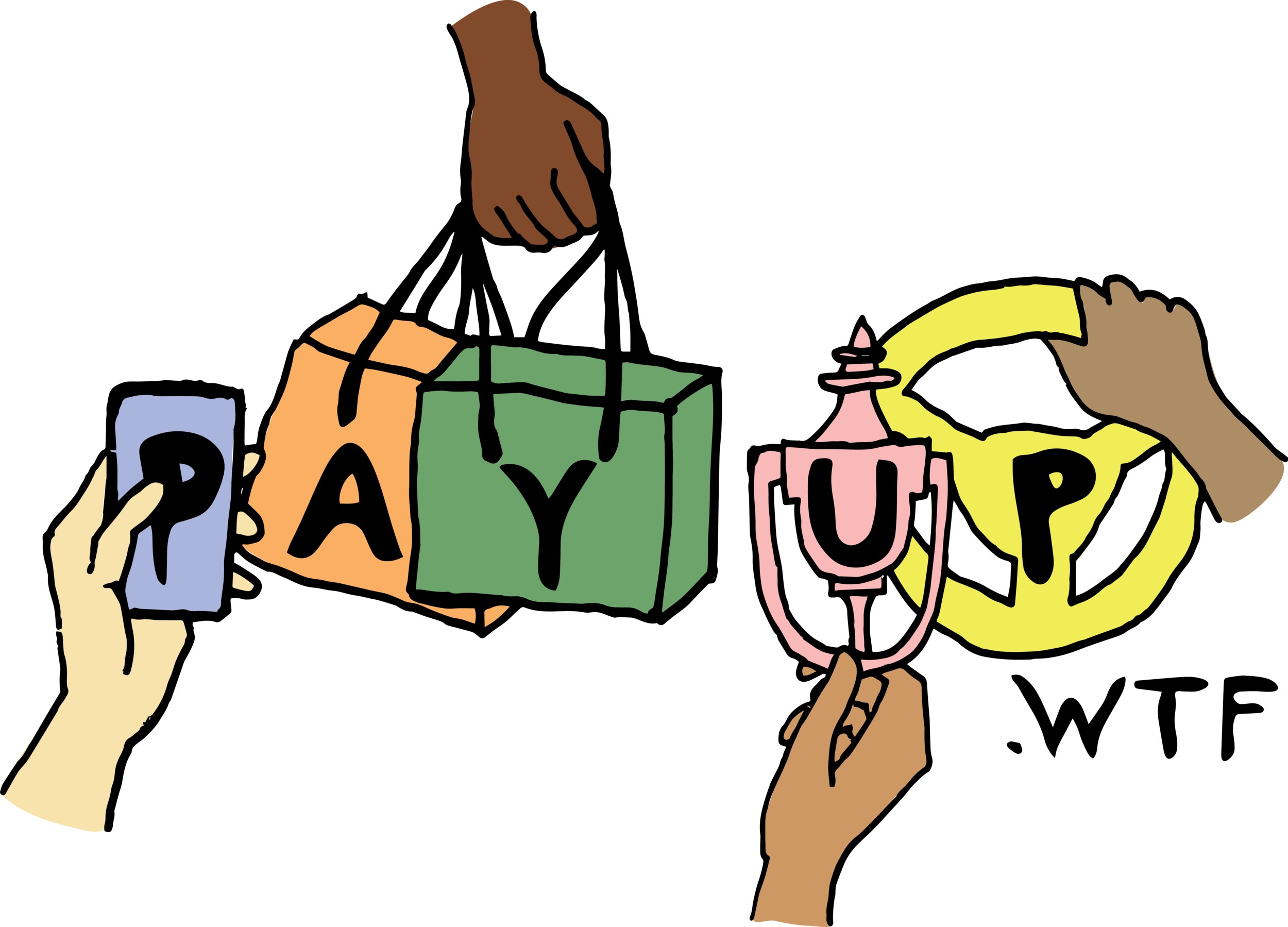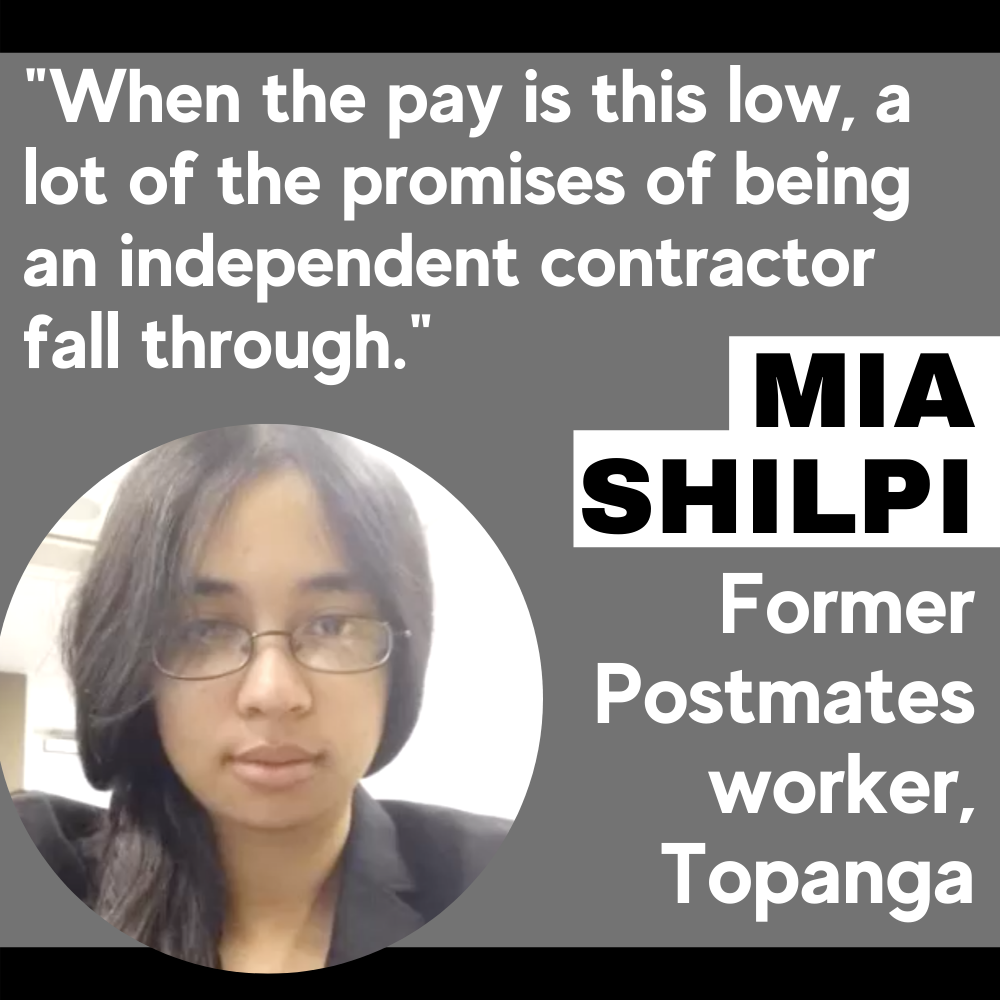No on Prop. 22: “I believed in the promise of freedom in gig work. But it didn’t pan out.”
Mia Shilpi
Former postmates worker, Berkeley
I turned to gig work because I needed the flexibility as a student. I’d left a minimum-wage barista job where the manager was terrible. One of my coworkers recommended Postmates. The freedom of gig work is really appealing when you’ve got a manager breathing down your neck about being two minutes late.
But the promise of freedom didn’t really pan out. I could technically set my own schedule, but I couldn’t always make money. If I set aside 10 hours, I’d only make a consistent minimum wage for 4 or 5 of those hours. The pay was so low I was entirely dependent on tips, which were inconsistent. Some customers don’t realize they need to tip at all — they assume we’re making minimum wage.
When paying for my own car insurance and repairs entered the picture, I realized I wasn’t really making any money. I applied for a part-time job at a gas station where I frequently filled up while making deliveries. After a month of working at the gas station, I realized I was depending on my wages from that job to pay for gas and save up to cover the taxes on my Postmates income. When one job is subsidizing another, the second job seems kind of meaningless, so I quit Postmates.
Personally, I’m apathetic about being an employee or an independent contractor, because what each is like in reality is so dependent on the company you work for. As an employee, the power of management has a huge impact on the quality of the work. It can make your job a living hell, or it can make your work better.
My gas station job is objectively terrible, but my manager is pretty reasonable. With Postmates, I could only get work for a few hours a day, which were often during class times, and scheduling around classes was hard because orders were so unpredictable. Meanwhile, employment meant predictable, reliable hours of work, and people I could communicate with about scheduling. The ironic result is that I have more flexibility with a retail job than with my gig work and all the “freedom” it offered.
I had the choice to leave the gig economy when it didn’t work for me. Not everyone has that option.
Given how key flexibility is, gig work needs pay protections to create true flexibility.
When the pay is this low, a lot of the promises of being an independent contractor fall through. You really only have the option to not work if you have the option to not earn money. You don’t get sick pay if you need time off or unemployment if the app deactivates you.
Most gig workers want flexibility, like I did. Prop. 22 won’t provide that. It wouldn’t create more flexible work, and could actually allow gig companies to restrict scheduling even more. And it would allow companies to pay for only a fraction of the time workers have to be available and a fraction of the mileage expenses they incur. It’s a law designed to carve out workers from basic labor standards, and set new standards the companies have written for themselves.

